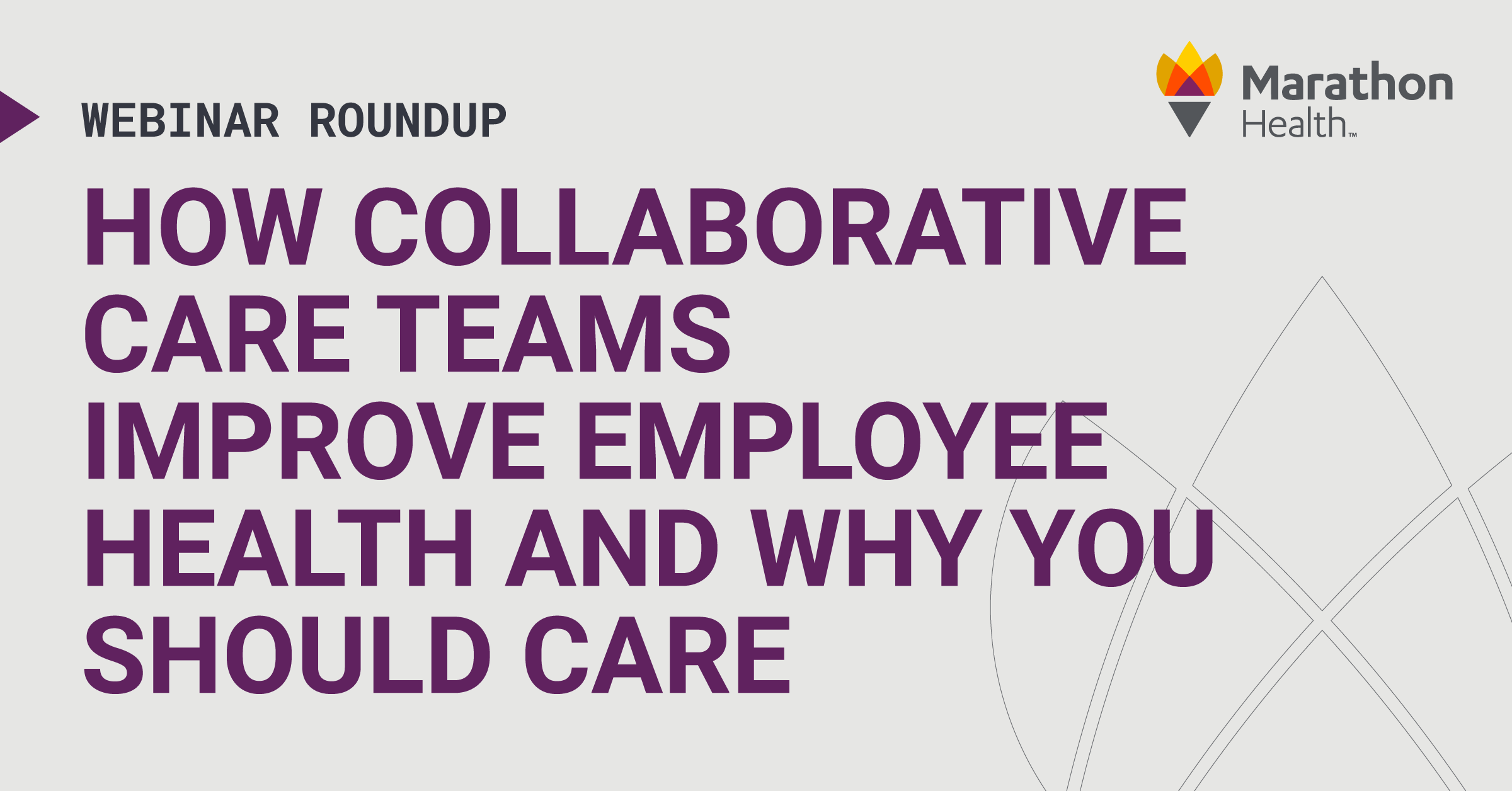Collaborative Care Teams Improve Employee Health and Build Trust
September 16th, 2021 | 2 min. read
By Kristy Esch

During our recent webinar, How Collaborative Care Teams Improve Employee Health, we discussed how integrated care providers who are dedicated to employee health can make a big impact in managing and improving chronic health conditions.
Marathon Health CMO and webinar series host, Shelly Towns, spoke with our collaborative care team from Summit Employers Health Center in Vermont, which includes Christina Tourangeau, Family Nurse Practitioner; Damir Alisa, Behavioral Health Counselor; and Angela Holmes, Medical Assistant.
Throughout the discussion, we dove into how employers today are seeing more unmanaged healthcare problems among their employees than ever before. With a focus on getting their teams healthier, more employers are offering low or no-cost healthcare services as a benefit. These benefits include collaborative healthcare teams who build relationships with employees to drive true health behavior changes.
Each team member on the video call stressed the importance of time spent with employees to adequately address the whole person. Collaborative care that often includes health coaching and behavioral health services, begins with more time with patients to ask the right questions. By building relationships with employees, the care team said they’re each able to build trust and work as a dedicated guide to support each employee’s health goals.
“I do think there’s a direct correlation between our approach and positive results in our patient population. Our approach allows us to connect with our patients authentically,” Damir says. “As a result, they are far more likely to engage in taking care of their health.”
Considering a collaborative care team for your employees? Watch our video to learn more.
During the webinar, participants who took our poll said when planning for open enrollment, they consider lower healthcare costs and improved employee health as top priorities. Nearly two-thirds, 65% of participants, do not offer or aren’t sure if they currently offer behavioral health services outside of an Employee Assistance Program (EAP) to their employees.
The discussion included each care team member’s journey to Marathon Health, the differences they see from traditional practice, and the results they are experiencing being able to fully support patients.
“We’re there for the patients 24/7. We have a good rapport with them, and they love the fact that we are real – there’s nothing fake about any of us,” Angela said. “We are who we are. Therefore, they feel okay to open up to us, which is ultimately what we want to get the results we need.”
Hear more about how the care team works together to impact patient success resulting in productive, happier employees and reduced healthcare costs for the employer.
Additional Articles You Might Like
Conference Roundup: Industry Thought Leaders Kick Off 9th Annual NAWHC Conference
Thought Leadership: How to Strengthen Patient Relationships for Better Health Outcomes